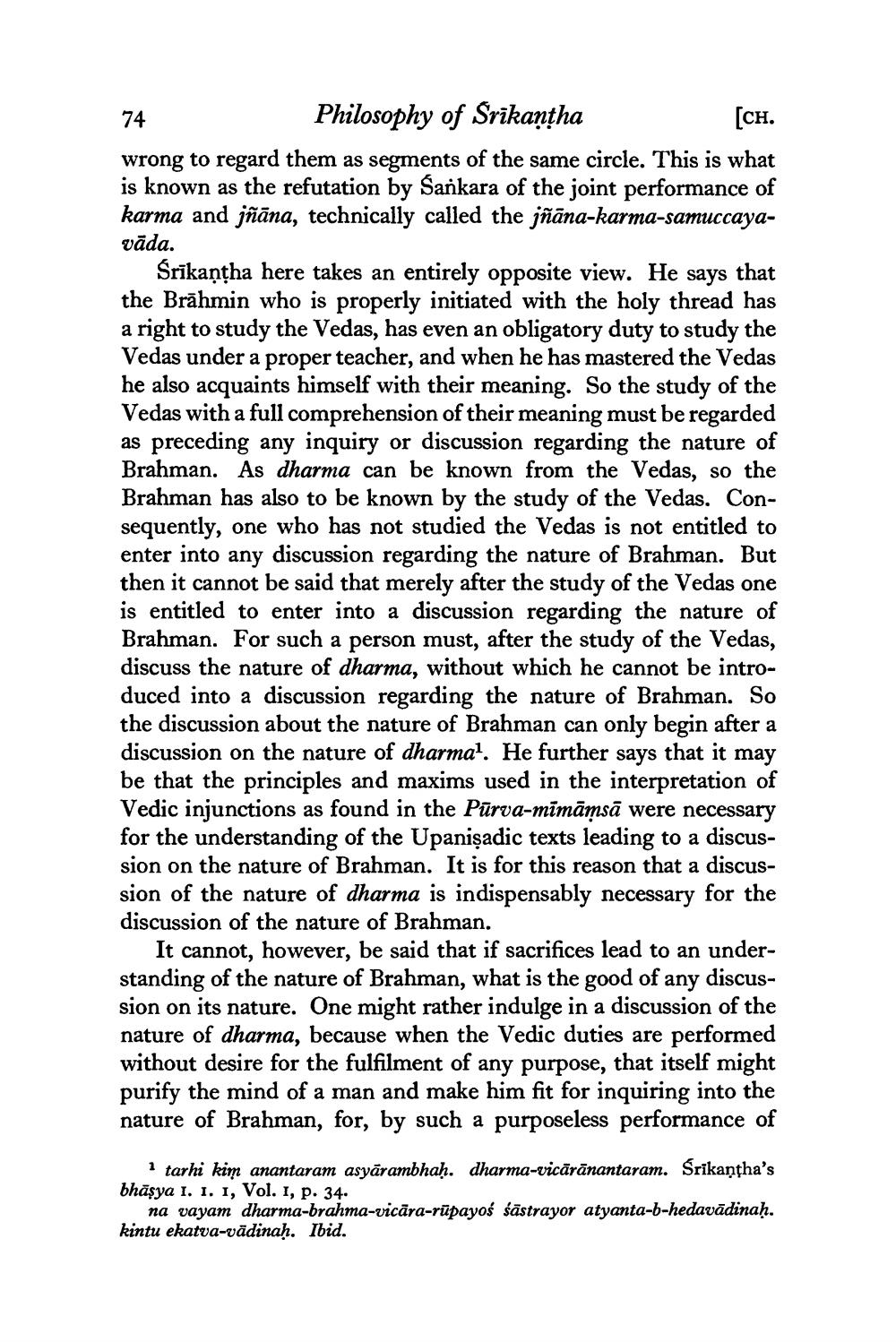________________
74
[CH.
Philosophy of Srikantha wrong to regard them as segments of the same circle. This is what is known as the refutation by Sankara of the joint performance of karma and jñāna, technically called the jñāna-karma-samuccayavāda.
Śrīkantha here takes an entirely opposite view. He says that the Brāhmin who is properly initiated with the holy thread has a right to study the Vedas, has even an obligatory duty to study the Vedas under a proper teacher, and when he has mastered the Vedas he also acquaints himself with their meaning. So the study of the Vedas with a full comprehension of their meaning must be regarded as preceding any inquiry or discussion regarding the nature of Brahman. As dharma can be known from the Vedas, so the Brahman has also to be known by the study of the Vedas. Consequently, one who has not studied the Vedas is not entitled to enter into any discussion regarding the nature of Brahman. But then it cannot be said that merely after the study of the Vedas one is entitled to enter into a discussion regarding the nature of Brahman. For such a person must, after the study of the Vedas, discuss the nature of dharma, without which he cannot be introduced into a discussion regarding the nature of Brahman. So the discussion about the nature of Brahman can only begin after a discussion on the nature of dharma'. He further says that it may be that the principles and maxims used in the interpretation of Vedic injunctions as found in the Pūrva-mīmāmsā were necessary for the understanding of the Upanișadic texts leading to a discussion on the nature of Brahman. It is for this reason that a discussion of the nature of dharma is indispensably necessary for the discussion of the nature of Brahman.
It cannot, however, be said that if sacrifices lead to an understanding of the nature of Brahman, what is the good of any discussion on its nature. One might rather indulge in a discussion of the nature of dharma, because when the Vedic duties are performed without desire for the fulfilment of any purpose, that itself might purify the mind of a man and make him fit for inquiring into the nature of Brahman, for, by such a purposeless performance of
1 tarhi kim anantaram asyārambhah. dharma-vicārānantaram. Srikantha's bhāşya 1. 1. I, Vol. I, p. 34.
na vayam dharma-brahma-vicāra-rūpayoś śāstrayor atyanta-b-hedavādinaḥ. kintu ekatva-vādinah. Ibid.




